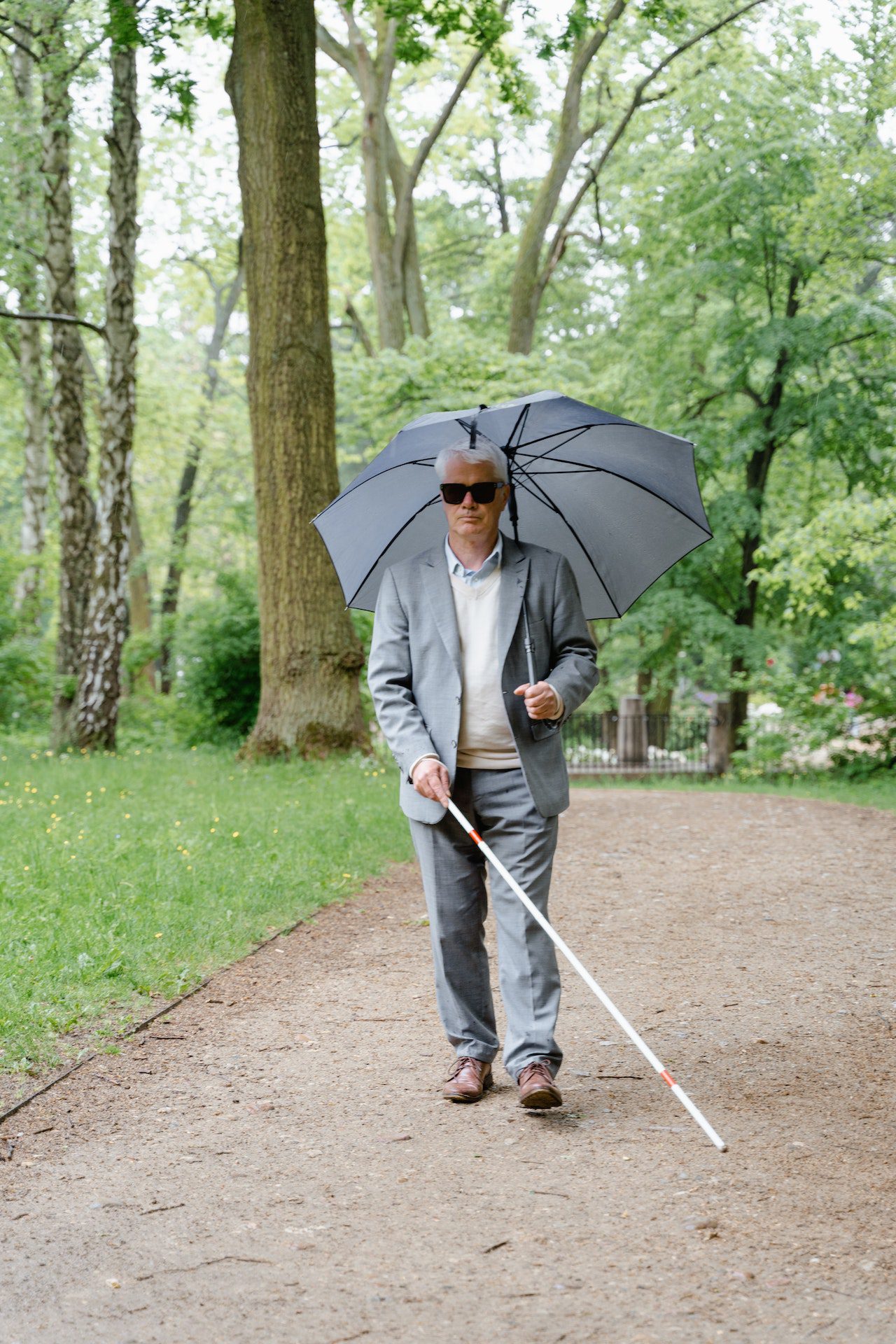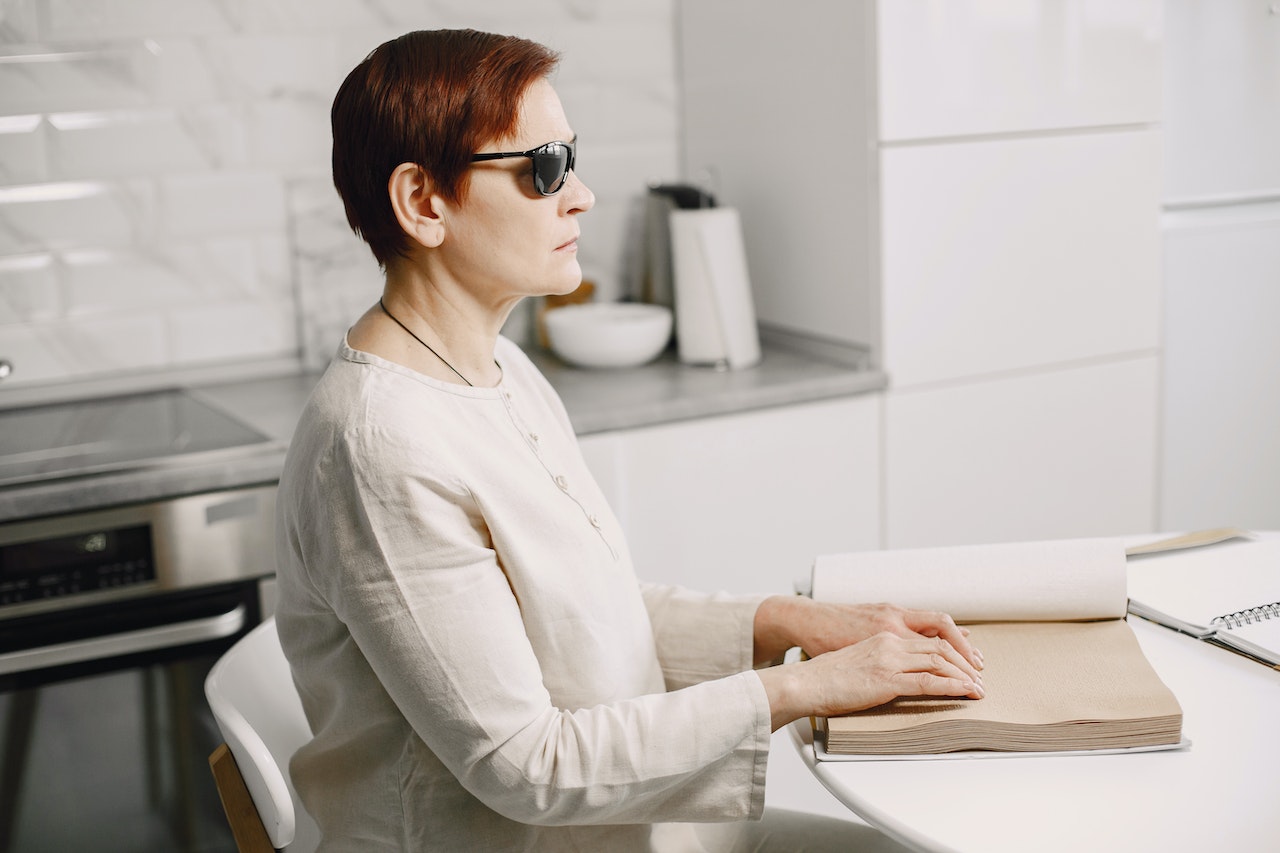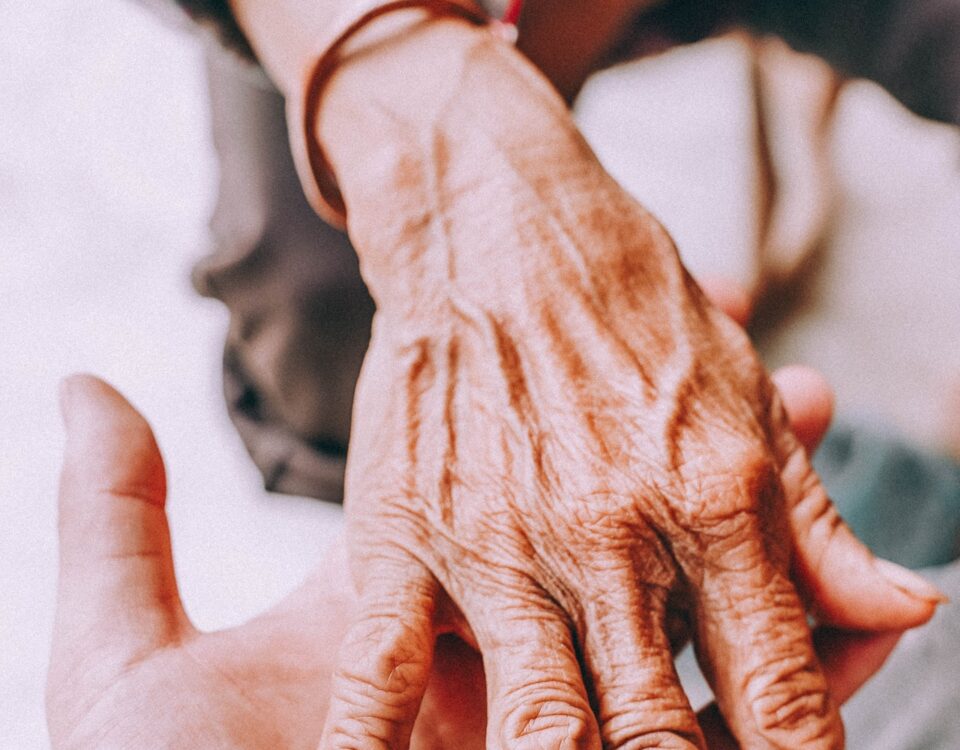You can’t always be there. But we can.
When an Elderly Loved One Has Lost their Vision

Tips for Managing Arthritis Pain in the Elderly
July 3, 2023When an Elderly Loved One Has Lost their Vision
Tips for Caring for a Blind Person

It’s essential to understand the unique difficulties encountered by visually impaired elderly individuals and provide support to ensure their well-being. With this article, I hope to offer guidance and tips for caregivers in a similar situation, sharing insights from my personal experience and those professional caregivers that work with 1Heart Caregiver Services.
Understanding the common causes of vision loss in the elderly
Caring for a blind person requires some understanding of the common conditions that cause vision loss. These can include:
These conditions can lead to a significant decline in vision or even total blindness, making it crucial to be aware of their signs and symptoms. If you suspect your parent or loved one is experiencing vision problems, immediately contact a doctor and an optometrist.
How vision loss impacts emotional stability
When caring for a blind elderly person, it’s important to remember that vision loss can lead to feelings of frustration, grief, and anxiety as individuals struggle to adapt. Recognizing these emotions and offering understanding and support as they cope with this life-changing situation is essential.
The ways vision loss affects daily activities and independence
Activities like reading, cooking, and navigating around the house can become challenging or impossible for someone with vision loss. This change can lead to decreased independence, making it crucial to find ways to adapt and maintain their autonomy.
Strategies for Adapting Your Loved One’s Home Environment
When caring for a blind elderly person, their home must be made safer and more accessible. What does this involve? Here are some suggestions:
- Removing hazards and clutter from the floors and hallways to reduce falls.
- Improve lighting to create a brighter environment for those with reduced or low vision.
- Rearrange furniture for easier navigation.
Be sure to involve your loved one with these adjustments. Their input is important in maintaining their dignity and shows you respect their independence.
Incorporate assistive devices and technology for the visually impaired
Modern technology and assistive devices can help with caring for a blind person. Consider the following:
- Talking clocks and watches
- Large print or braille books
- Screen reader technology for computers
- Voice-activated devices and smart home technology
These tools can help your loved one maintain their independence by providing accessible ways to stay informed, communicate, and control their environment.

Caring for a Blind Elderly Person‘s Emotional and Physical Wellbeing
Creating a safe space for your loved one to express their feelings and frustrations is important. Be empathetic and understanding, acknowledging their difficulties while offering reassurance and support.
- Encourage open communication and empathy
- Help your loved one maintain a sense of purpose and identity
- Promote social connectedness and support networks
- Address feelings of grief, frustration, and anxiety
It’s important to remember that you and your loved one are not alone! Seek professional help from a counselor or in-home caregiver experienced in working with individuals experiencing vision loss.
Ensure Proper Healthcare for Vision Loss
When caring for a blind elderly person, keep up with regular eye exams and medical appointments to monitor your loved one’s vision status and ensure they receive appropriate care. Educate yourself about the specific condition affecting your loved one’s vision and potential treatment options and resources available to support their needs.
Always Encourage Independence
Creating an environment where independence is encouraged is essential when caring for a blind person. Here are three tips for helping your loved one stay confident about living independently:
- Adapt and modify their favorite hobbies and activities
- Encourage participation in daily routines as much as possible, adapting tasks to accommodate their abilities.
- Explore local resources and services for the blind and visually impaired, including accessible transportation options, support groups, and recreational programs.
1Heart Services Can Help
Caring for a blind elderly person requires patience, understanding, and empathy. With 1Heart Caregivers, we help maintain your loved one’s independence and dignity. Learn about our caregiving services, and contact us to learn more about how we can help.

